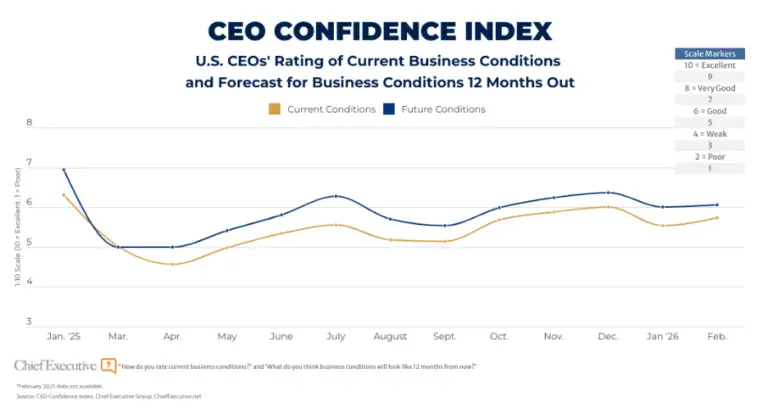 Ask Appian’s Matt Calkins for book recommendations and he’ll happily reel off a lengthy list—none of which you’ll find on a list of best-selling business books. “I don’t think many business books are worth reading,” says Calkins, who instead seeks business lessons in historical accounts. “If you go to a popular book to learn about how businesses succeed, the business in question is described, but you don’t end up knowing why they won or get the information you need to replicate that success.”
Ask Appian’s Matt Calkins for book recommendations and he’ll happily reel off a lengthy list—none of which you’ll find on a list of best-selling business books. “I don’t think many business books are worth reading,” says Calkins, who instead seeks business lessons in historical accounts. “If you go to a popular book to learn about how businesses succeed, the business in question is described, but you don’t end up knowing why they won or get the information you need to replicate that success.”
Calkins, who also uses books as fodder in creating board games (his hobby), shared a handful of favorite and recent reads with Chief Executive.
CASE STUDIES IN CONFLICT
War in European History
Michael Howard
The Guns of August
Barbara W. Tuchman
Books like Michael Howard’s overview of European conflicts and Barbara Tuchman’s close-up account of the first year of World War I can offer conflict-resolution lessons, says Calkins. “The best way to understand how the world resolves its conflicts and its tensions is by looking at how a conflict that has been studied thoroughly, like World War I, unfolded and resolved,” he explains. “Business is like this too. If anyone were to ever get to the heart of Coke vs. Pepsi, they would see a parade of mistakes in the same way World War I looks in retrospect—so many ways you could have done better.”
DECODING INNOVATION
The Double Helix: A Personal Account of the Discovery of the Structure of DNA
James D. Watson
The scientist’s memoir about the race to beat Linus Pauling to unravel the mysteries of DNA “gives you an insider’s look at how innovation happens, the struggles in it and the rivalry in the race to get to the heart of molecular structures,” says Calkins. “It felt like a business story but it’s really about science and innovation.”
UNDERSTANDING INDUSTRIES
Hard Landing: The Epic Contest for Power and Profits that Plunged the Airlines into Chaos
By Thomas Petzinger Jr.
Calkins recently undertook a reading-informed immersion course on the airline industry. “I grabbed a bunch of books because I was writing a board game on building an airline in the 1930s,” he explains, noting that the airline industry is a case study in overcoming structural challenges. “The dependence on experienced labor, and thus the vulnerability to strikes; the dependence on the cost of fuel, an enormous input that fluctuates; and nationalism, the fact that nations subsidize their airlines—these factors make the airline industry so vulnerable.”
LEADERSHIP LESSONS
Titan: The Life of John D. Rockefeller, Sr.
Ron Chernow
“This is how a creative and intense person wrestled with the emergence of an industry,” says Calkins, who came away from Chernow’s biography of the oil magnate liking Rockefeller, despite the titan’s relentless pursuit of a monopoly and ruthless treatment of competitors. “By owning the oil refining stage, he figured he could protect oil from the otherwise inevitable boom-and-bust cycle that would tear up investments made in the industry. It was a business feat to put together Standard Oil, and this history makes it clear what kind of person it took to achieve that feat.”
IN SEARCH OF TRUTH
The Great Philosophers: An Introduction to Western Philosophy
Bryan Magee
“Philosophy makes you think about what it is you are really seeing,” says Calkins. “One of the keys to running a winning business is to relentlessly pursue the truth. Don’t kid yourself about how good the business is. Understand your competitors, the fundamental trends that exist in your space and what the next opportunity is, which may not be what you are selling.”
Rather than being about telling a good story, books like Bryan Magee’s interviews with leading philosophers are about questioning assumptions and getting to the truth—a valuable lesson for CEOs.







